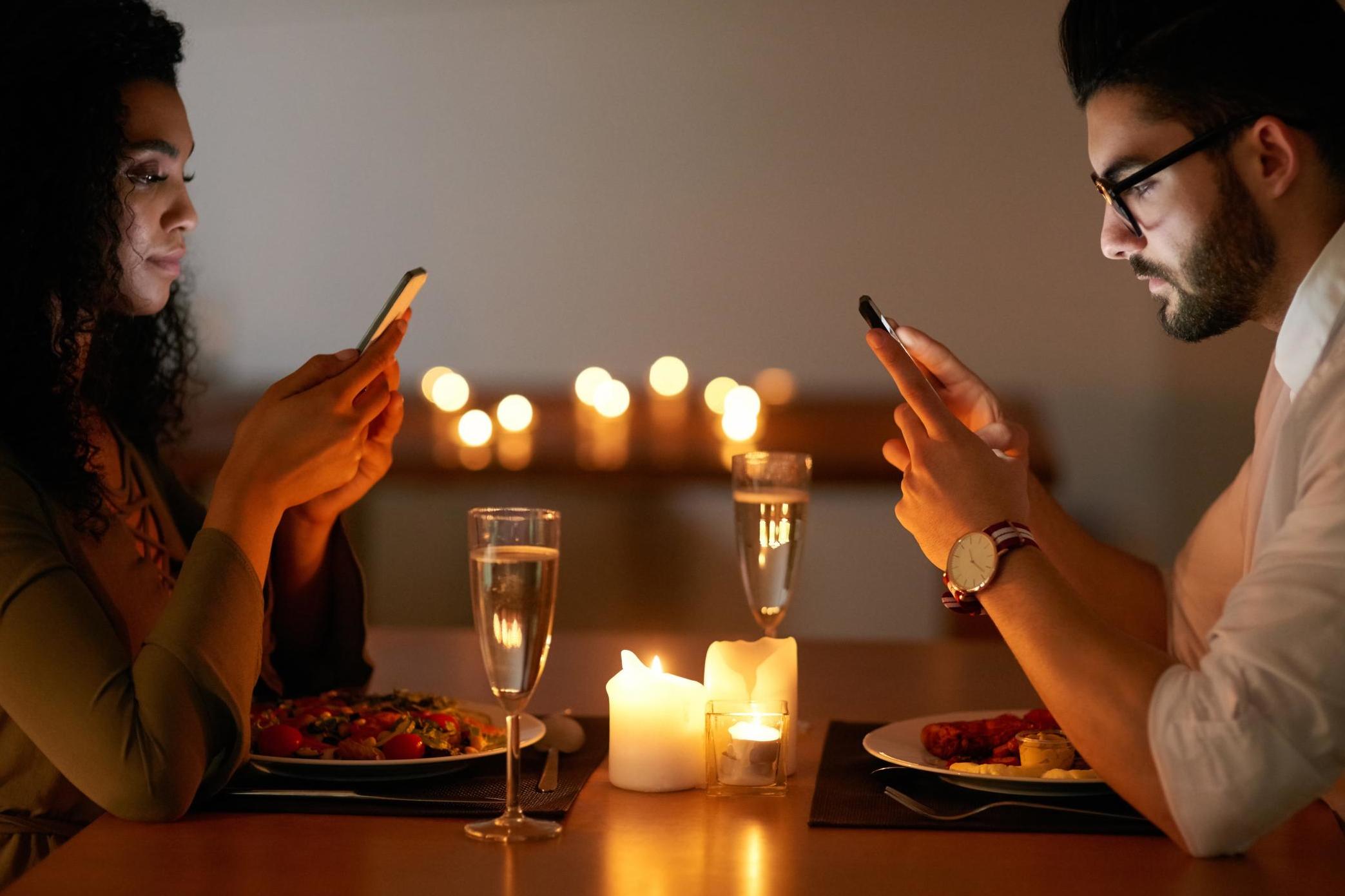Picture this: you’re out for dinner with your partner. The food arrives, the conversation flows – and then their phone buzzes. They glance down, smile faintly and start typing. You sit there, fork in hand, suddenly invisible.
That moment has a name: phubbing, a mash-up of “phone” and “snubbing.” It’s become an almost inevitable feature of modern relationships, as smartphones claim a place at the table – sometimes literally.
You might think of phubbing as a minor irritation, but our research shows it can erode relationship quality, dent self-esteem, stir up resentment and even trigger retaliation. And some people are far more sensitive to it than others.
Using a daily diary study, we tracked 196 people over multiple days, asking them to report how much they felt phubbed by their partner, how they reacted and how they felt afterwards.

The pattern was remarkably consistent. On days when people felt more phubbed, they reported lower relationship satisfaction, worse mood and more anger or frustration.
Phubbing can make the “phubbee” feel excluded, less important and less connected. This fits with equity theory in psychology – relationships feel better when both partners invest equally. If your partner is focused on their phone instead of you, it can signal unequal investment.
Individual differences
Not everyone experiences phubbing the same way. In our 2025 study, published in the Journal of Personality, we found that attachment style – the habitual way people think and feel about relationships – played a big role.
People higher in attachment anxiety – who fear abandonment and crave reassurance – reacted more strongly when phubbed. They reported more depressed mood, lower self-esteem and greater resentment. They were also more likely to retaliate.
Those higher in attachment avoidance – who are uncomfortable with closeness – didn’t report their relationship satisfaction drop as sharply due to phubbing, but they still sometimes retaliated, often by picking up their own phone to seek approval and validation from others when their partner wasn’t meeting these needs.
Narcissism can also play a role. People with high levels of narcissism generally like being the centre of attention, but they may go about it in different ways. In another 2025 study, we examined two sub-types of narcissism: narcissistic rivalry (being antagonistic, insecure and status-defending) and narcissistic admiration (being self-promoting and charm-driven).
We found that people higher in narcissistic rivalry reported lower self-esteem, higher anger and more conflict – whether phubbed or not. When phubbed, they were more curious about what their partner was doing, but also more likely to retaliate out of revenge or to gain approval from others.
People higher in narcissistic admiration tended to have higher relationship satisfaction and wellbeing overall. When phubbed, they were more likely to engage in conflict with their partner than retaliation.
Phubbing as a tit-for-tat game
In our earlier 2022 study, we looked more closely at the type of behaviour phubbed partners engaged in. Common responses included ignoring the phubbing, feeling resentful, asking about the phone use or directly confronting the partner. But one of the most frequent, and telling, responses was retaliation – picking up their own phone and doing the same.
When we asked why people retaliated, three main motives emerged. One was revenge, to “teach the partner a lesson”. The other was seeking support, turning to others for connection when the partner seemed unavailable. And a third was seeking approval – posting on social media or messaging to get validation from others. Boredom was also sometimes mentioned, but it was far less common.

Phubbing might seem trivial – after all, we all check our phones. But in relationships, it can act as a micro-rupture in connection. These small moments can accumulate, creating a sense that your partner’s attention is elsewhere and that you’re less valued.
For people who are already sensitive to signs of rejection – like those high in attachment anxiety or narcissistic rivalry – the impact can be magnified. They may interpret phubbing as a deliberate slight, rather than a mindless habit. This can set off cycles of conflict or withdrawal.
How to break the phubbing cycle
If you’ve ever been accused of phubbing, it doesn’t mean you’re a bad partner, but it might mean your habits need attention.
Simple steps that can help protect relationship quality include creating “phone-free” zones during meals or before bed. It could also be useful to acknowledge the interruption if you must check your phone – explaining why and returning your attention quickly.
Ideally, couples should discuss phone boundaries openly so both partners feel respected. If you’re the phubbee, recognising your own triggers can help. If phubbing hits a deep nerve, it may reflect earlier experiences of feeling ignored or undervalued. Perhaps your partner checking their phone isn’t about your inadequacy but rather about having a bad habit that’s hard to break. Knowing this can help you respond in ways that repair connection rather than escalate conflict.
Ultimately, smartphones aren’t going away and neither is phubbing. But our findings suggest that the small, everyday choice to be present with your partner matters more than you might think. Put simply, when you put down your phone, you pick up your relationship.
Claire Hart is an Associate Professor of Psychology at the University of Southampton.
Kathy Carnelley is an Associate Professor of Psychology at the University of Southampton.
This article is republished from The Conversation under a Creative Commons license. Read the original article.




